What’s it like living in Madrid? Ask an Expat
Sonia lives in Madrid. It’s a large, dynamic city and we were curious about what led her there and what life is like in Spain’s capital. This interview really gave us a feel for the cosmopolitan nature of Madrid as well as an appreciation of why young professionals from around the world are attracted to this city.
Sonia teaches Spanish to expats of different nationalities, but she specialises in teaching English and Polish native speakers (more info at the bottom of this post). With her experience, she has lots of interesting insights on culture in Madrid and Spain in general. A fascinating read.

Name: Sonia Maćkowiak
Age: 30
Country of Origin: Poland
Number of years living in Spain: 6
How did you end up in Spain Sonia?
I moved to Madrid in 2012 in order to do my Master’s in Spanish Linguistics at Universidad Complutense de Madrid. I had previously studied Spanish Language and Literature in Poland and wanted to continue my education in Spain. I quickly got a job as an English teacher and a bit later I started my PhD in Spanish Linguistics. In 2016 I moved to the UK (Cambridge) but came back to Madrid 2 years later.
How did you end up choosing Madrid as your base?
When I was still living in Poland I visited Madrid twice and fell in love with it. I thought to myself at that time “How cool would it be to live here!” so when I had to decide where to do my Master’s in Spain I didn’t hesitate when it came to my choice of the city.
I know you’re thinking about moving to Valencia. But first, what have been the positives of living in Madrid?
It’s a big, vibrant city with people from all over the world. There are so many things happening: festivals, concerts, exhibitions and many protests! You never get bored by the amount of activities (which are often free of charge) that the city has to offer. There are also a lot of green areas, for example the famous Retiro Park or the huge Casa de Campo. Moreover, it’s not that far from the mountains, so you can escape urban life easily and connect with nature. Madrid is located in the centre of Spain which is very convenient if you want to travel around the country. There are also many flight connections betwen Madrid and destinations around the world. I like the fact that you can easily see famous people, for example if you want to see actress Carmen Machi or other actors known from TV and cinema, you can simply go to one of the many theatres. I also ″bumped” into some famous people on the street or inside restaurants, e.g. I onces saw king Felipe VI (who at that time was still a prince) in the street late at night in Malasaña (a party neighbourhood) or film director Pedro Almódovar in one of the cinemas that offer films in their original language (it was a regular showing and he was sitting in the audience) with whom I managed to take a photo. I also said Hi to singer Joaquín Sabina while he was sipping wine in a terraza and Uruguayan musican Jorge Drexler (who got an Oscar for the song Al otro lado del río from the film The Motorcycle Diaries) in a restaurant.

A few useful Resources
Buying Private health insurance in Spain. We recommend Innoinsure, they make it easy and offer different policies through various providers. And you don’t need a Spanish bank account – you can pay with foreign credit cards. More info here.
Spartan FX. Buying a house or car in Spain and need to transfer and exchange a large sum of money? More here.
Wise. For everyday transfers and exchanges of money from your home country. Nobody should be using banks anymore. More here.
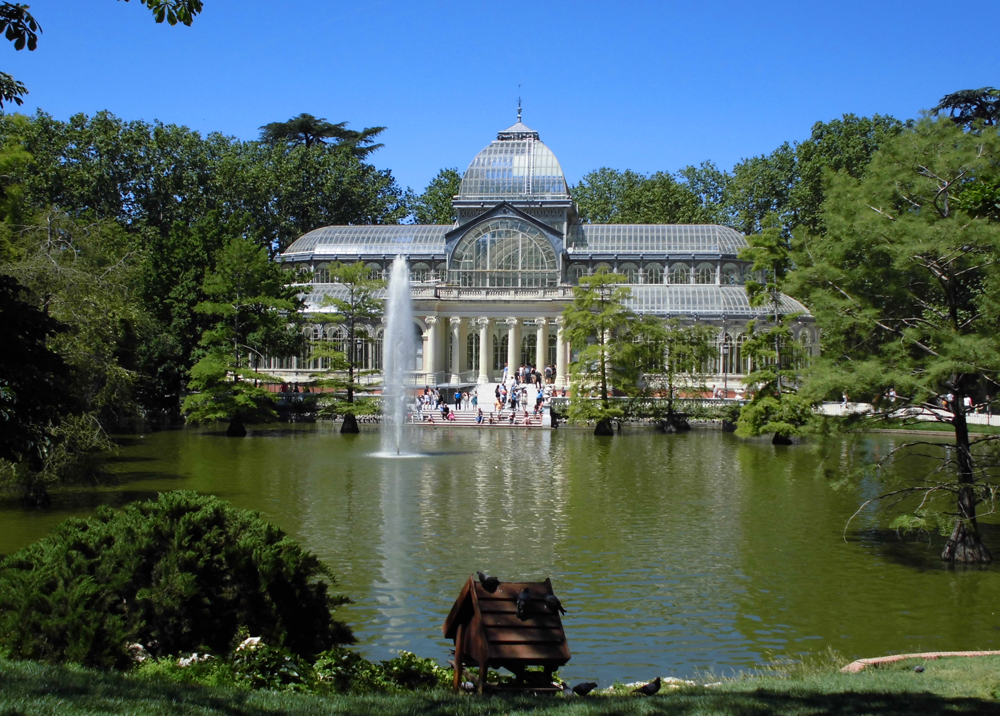
What do you dislike about living in Madrid?
Since it’s a big city, the distance between places can be overwhelming. The public transport is quite good, but you can still spend even an hour commuting from one side to another. The metro can be really crowded too, especially at peak hours. Another problem is the pollution: if you go to the mountains you can often see a big dark cloud hanging over the city and imagine what you’ve been breathing in that whole time. Also, the prices are much higher than in other Spanish cities, e.g. accommodation. Another drawback is the weather in summer: it’s very hot and there’s no beach (the closest one is in Valencia), but you can go up north to the nearest mountains where you can find some waterfalls or drive for around 1 hour to the west to a big lake called Embalse de San Juan.
What (if anything) do you feel you most had to adjust to when coming to live in Spain?
In Poland, banks are usually open until 5:00 pm/6:00 pm, but in Spain they usually close at mediodía (lunchtime) which starts around 1:00 pm. The same with many shops and services, living in Spain you have to remember you won’t get many things done between 1:00 pm-4:00 pm or even 5:00 pm, but you can come back after that time (unless it’s a bank). In Poland you can eat out at any point of the day, but in Spain the hours of lunch and dinner are quite strict. Even in Madrid it’s not that easy to find a proper restaurant (not a McDonald’s or KFC) which serves food between 4:00 pm and 9:00 pm. You have to bear that in mind and keep a list of the places which do serve food all day or simply cook at home. Another problem for me has been the cold inside the flats in winter. The buildings are not prepared for low temperatures at all. During winter, I feel much colder inside apartments in Madrid than in Poland, where the temperature outside is much lower, but the buildings have proper isolation.
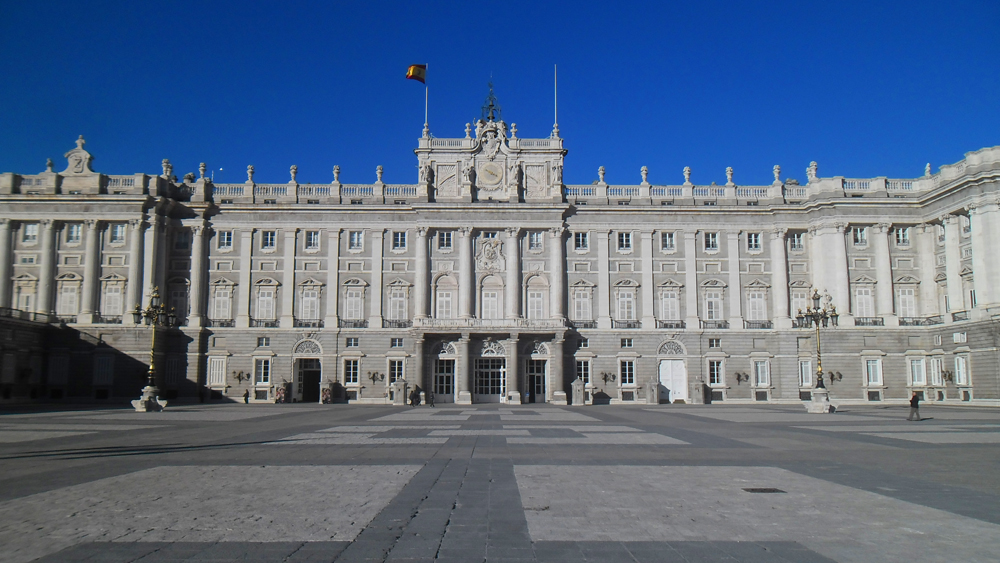
I know you’ve taught English to Spaniards and that you now teach Spanish to expats. I’m curious about cultural differences (between the Spanish vs expats) when it comes to learning. Any insights?
One of the stereotypes about Spaniards is that they are lazy. After having taught people from many nationalities, I think “a lazy student” who never does any homework and skips classes is a universal concept and can be found across the world. The same with hard-working students, it’s not a matter of nationality and can be found anywhere. I must admit though that since Spaniards are taught their own grammar at school and that they previously have learnt some English and French or German at school, it’s easier to teach them using typical terminology (parts of speech, parts of a sentence, tenses) or by making comparisons between Spanish and English or another language. In case of native English speakers who have never learnt anything about their own grammar nor a foreign language, I have to revise with them some linguistic terminology and concepts essential in language learning as well as certain grammar aspects of the English language before actually jumping into Spanish. For that reason it’s also easier to teach Poles since we learn a minimum of two foreign languages at school, so in many cases Spanish is someone’s third foreign language.
What’s your daily life like in Madrid? How do you usually (in non-pandemic times) keep yourself busy?
I play volleyball, so I go to training sessions and tournaments. I also go out to bars and pubs, and there are so many in Madrid. I sometimes wonder how many months or even years you’d need in order to go to a different place every night in Madrid before you started to go to the same places again. I sometimes go to a live gig, you can find places with different types of music. If the weather is nice, I’ll go to the park for a walk or a picnic. I sometimes go to one of the many museums or an exhibition.
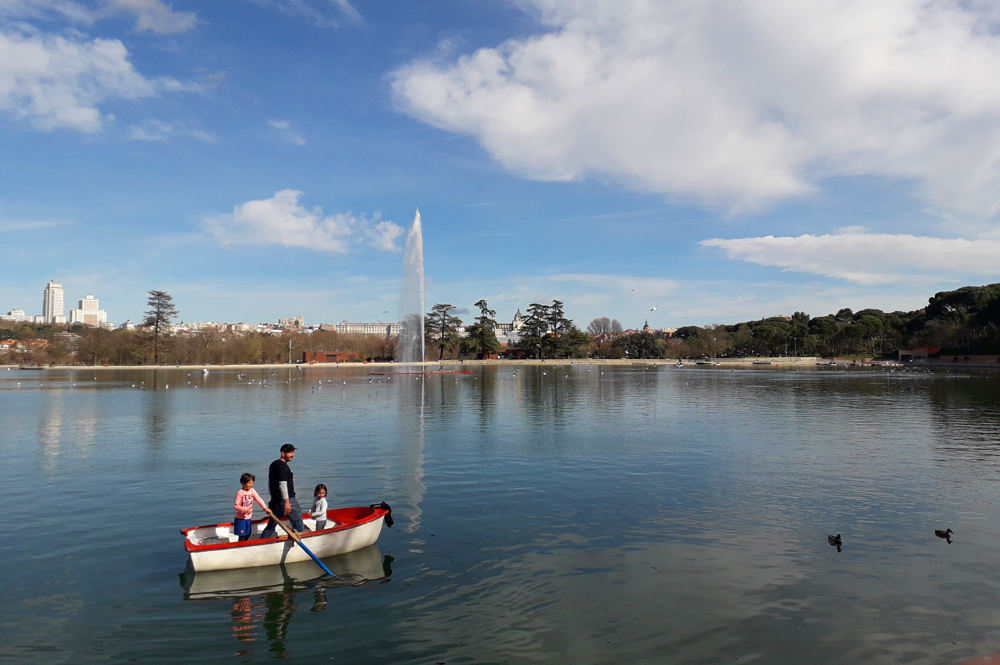
Do you take part in an Expat community in Madrid? What’s kind of expats do you see there? (I imagine they’re very different than the ones along the coast)
The most expats I meet is at Couchsurfing events. I also use Meetup: I go to volleyball events and the meetings organized by the group Brits in Madrid. On these platforms there are people who come from all over the world (but also Spaniards), who have interesting stories to tell, have different professions (not only English teachers), don’t have families in Madrid and/or are single, so they are looking to spend some time with other people, especially by doing a certain activity, e.g. playing sports, dancing salsa or going to the cinema. I’m also a member of Polish Professionals in Madrid (PPM), which is an association that gathers Polish professionals from all possible areas and I also did some networking there. Each night there’s a language exchange organised by someone in some bar in the centre. In overall, if someone is new to the city and doesn’t know anyone, it’s very easy to meet other people and make plans together.
How do you feel about the locals? Has living in Spain been a favorable experience? Do you have any tips (do’s and don’ts) for foreigners looking to settle here?
In Madrid, apart from expats, there are many people from all over Spain. The locals I met have been friendly and helpful. I’ve never lived in the typical “expat” neighbourhoods (e.g. the centre), so I’ve always been in touch with local residents, who are not only madrileños, but also people from Latin America. My biggest advice for any foreigners who are thinking of moving to Spain is to start learning as much Spanish as you can before you actually move, like I did. By observing some of my students, I can see how much of the local culture they’re missing out on by not knowing Spanish. If you speak the local language, you’re able to blend in and learn a lot, not mentioning dealing with every day chores. And even if you can’t attend classes with a teacher, there are plenty of free resources on the Internet.
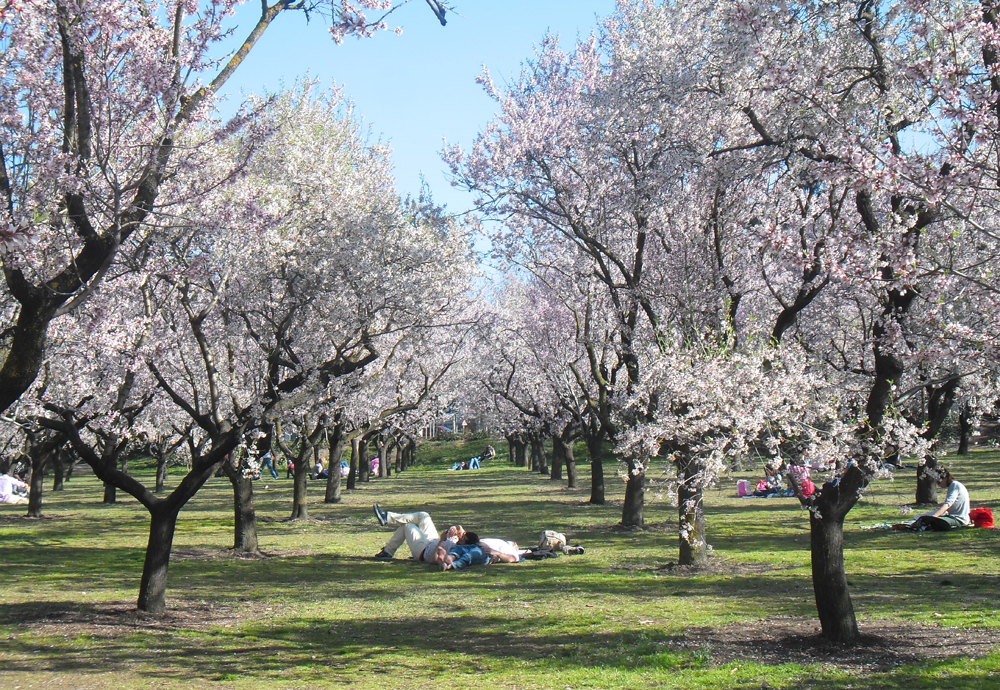
All the provinces and cities have their distinct culture and language. What stands out for you in Madrid?
The mix of cultures from other regions and countries. Regarding the language, the accent isn’t difficult to understand (especially if you compare it with the accent from Andalusia), and as every city or region, it has its own vocabulary and expressions, for example Mola mazo translates as I like it a lot. There’s a popular Spanish phrase De Madrid al cielo (literally: From Madrid to heaven), which means that after you’ve seen Madrid, the only place which tops it is heaven. There’s this stereotype of a madrileño chulo, which implies that the people of Madrid are cocky and arrogant, but I’ve had only good experiences with them. It’s worth mentioning there was a countercultural movement called La Movida Madrileña (the Madrid Scene) that took place during the Spanish transition after Francisco Franco’s death in 1975. Many now-famous artists created art at that time, for example Pedro Almodóvar. Popular songs from that epoque are still played in bars, like Mil campanas by Alaska y Dinarama, among others.
Cost of living. Do you own a home or do you rent? Would you mind disclosing how much you pay in rent and how much your utilities come to on a monthly basis? (very helpful for prospective expats)
I rent a room in a two-bedroom flat and pay 450 euros per month including the utilities. The flat isn’t far away from the centre, but it’s still expensive in comparison with the prices I remember when I first moved to Madrid (2012).
Do you have a car or do you take public transport?
I don’t have a car and always take public transport. Madrid’s metro and bus network are quite well organized (as long as there are no strikes), so you can easily get to the main parts of the city. If you need to travel quite far away, it might take much longer, so it’s good to have a book or something to occupy yourself with. The biggest shame is that the metro only works from around 6:00 am until 1:30 am, even at weekends. There are night buses, but they can take much longer than the metro.
What are your highlights in Madrid? When you have a day off, is there a place you like to walk/hang out?
I like playing volleyball in the park (provided it’s warm outside) or going to one of the many terrazas and sip tinto de verano. I like going to the cinema, and fortunately, in Madrid there are at least a few cinemas that show foreign films in the original version with Spanish subtitles, and not with dubbing.
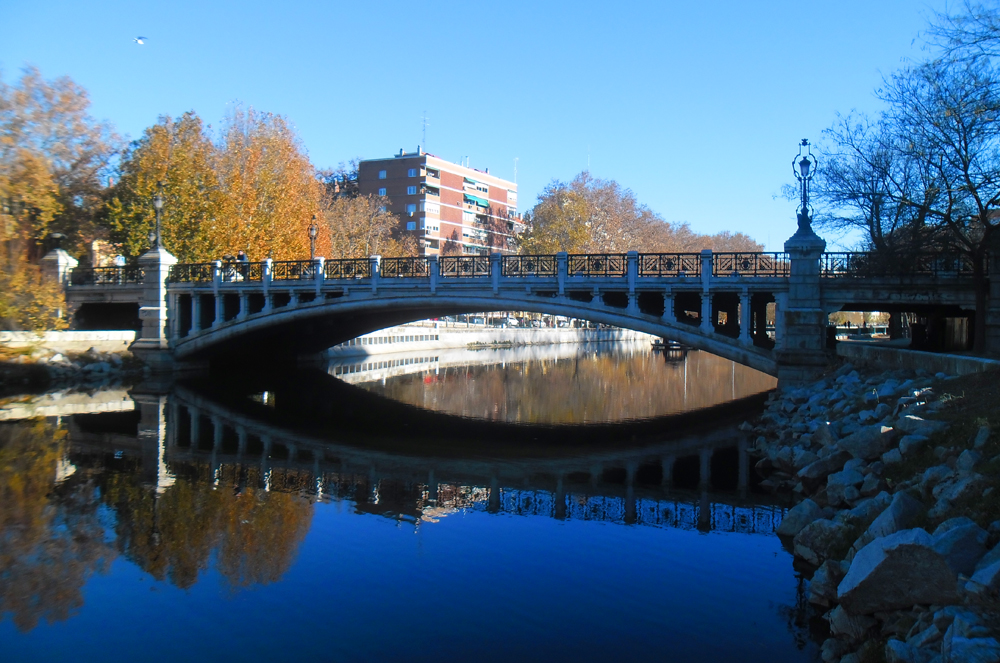
What’s your favorite local dish?
I’m a vegetarian, so the local dishes like cocido madrileño, callos a la madrileña or bocadillo de calamares are not for me. The ones I like are from Andalusia, that is salmorejo and gazpacho. But I do like a typical local Madrid drink, which is vermouth. There’s even la hora del vermút, a particular part of the day (typically Sunday pre-lunchtime) when you’re supposed to drink it! Churros with chocolate are very popular in Madrid too, and I do like them, but since they are quite greasy and heavy, I don’t eat them that often. Churros con chocolate is a typical breakfast here at 6:00 am after a long night of partying.
Do you have any regrets at all? Would you do it all over if you had to do it again? Would you have changed anything?
I’m very happy I moved to Spain and learnt so much about the country whose language and culture I studied at university in order to become a Spanish teacher. Now that my work is 100% online, I’m thinking of trying out a different city (e.g. Valencia) so I can experience life in a city on the coast.
Many thanks to Sonia for contributing all this information and for giving us a great read.
Sonia teaches Spanish to expats of different nationalities, but she specialises in teaching English and Polish native speakers. She’s even doing a PhD in Spanish Linguistics! So if you’re looking for someone to teach you Spanish she’s the perfect person. You can find her website here: Sonia Linguist.
Related: What’s it like living in Galicia? Ask an Expat
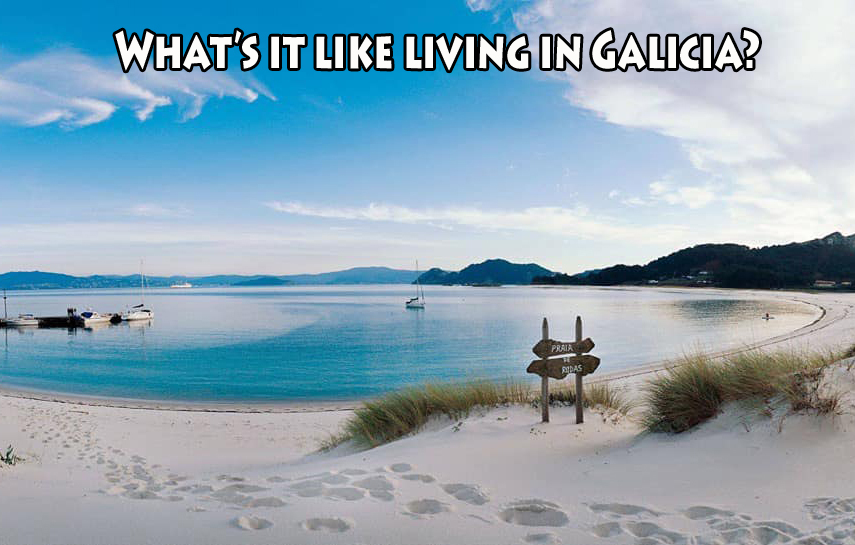
Related: What’s it like living in Teruel? (Aragon). Ask an Expat
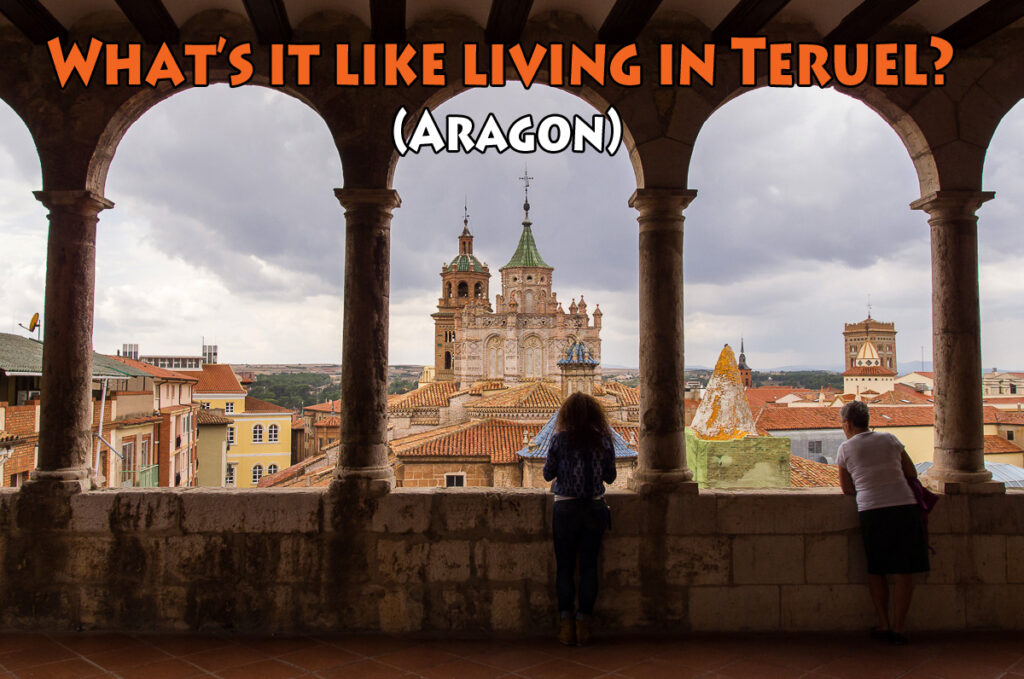

I am English and live in England. My daughter lives in Spain and has lessons with Sonia. She recommended her to me and I am in a class with some Ex pats living in Spain. The lessons are very good and Sonia always gives us lots of extra resources to access.
Sonia is my online Spanish tutor. She’s awesome. I highly recommend her.